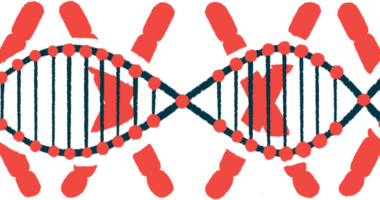Capricor Awarded $2.4 Million by U.S. DoD to Develop Therapeutic Exosomes
by |

Capricor Therapeutics, Inc. announced that the U.S. Department of Defense (DoD) has awarded the company a $2.4 million grant to establish a scalable, commercially-ready process to manufacture CAP-2003, the company’s proprietary exosome product candidate.
Capricor is a clinical-stage biotechnology company working on the discovery, development and commercialization of biological therapies. CAP-2003 (Cardiosphere-Derived Cell Exosomes) has been given its first clinical application in ocular graft-versus-host disease (oGVHD), for which the company expects to submit an Investigational New Drug (IND) application in the first half of 2017.
CAP-2003 represents exosomes that are isolated from the company’s proprietary cardiosphere-derived cells (CDCs), which are being clinically evaluated by Capricor for the treatment of several cardiac disorders, including those associated with Duchenne muscular dystrophy (DMD).
Exosomes are nano-sized, membrane-enclosed vesicles that are released by nearly every cell type in the human body. They act as the vehicle out of the cell for segments of genetic material and proteins, ultimately providing regulatory function for many cell processes, including inflammation, angiogenesis (formation of blood vessels), programmed cell death and scarring.
Exosomes are a vital mediator of cellular activities and are filled with select molecules, including proteins and microRNAs, which send messages to neighboring cells when released, to regulate cellular functions. Because of this mechanism of action, exosomes derived from cultured cells have showed potential to be used as therapeutic agents aimed to direct or, in some cases, re-direct cellular activities. Their potential lies on their size, ease in crossing cell membranes and their ability to communicate in the “native” cellular language of the cell.
“As we advance and expand our exosomes program, this grant from the DoD will support our objective of achieving a commercial manufacturing process for a candidate, which we believe has broad treatment potential,” Linda Marbán, PhD, Capricor’s president and chief executive officer, said in a press release.
“Studies of CAP-2003 in multiple models in which inflammation, scarring, and cell death are intrinsic to the disease process suggest that CAP-2003 possesses potent regenerative capabilities. As a cell-free material, CAP-2003 can be handled and stored in similar fashion to a traditional biopharmaceuticals, and may be better suited than cell-based therapeutics for certain applications,” Marbán said. “The activity CAP-2003 has shown in models of eye injury supports our enthusiasm to enter it into the clinic for ocular graft-versus-host disease next year.”







